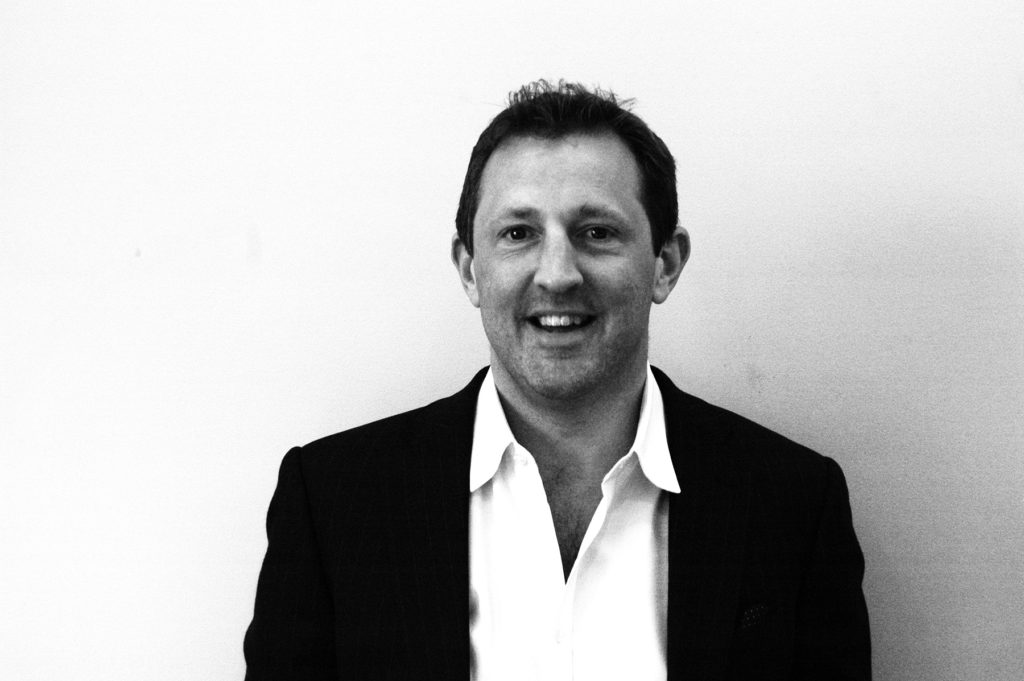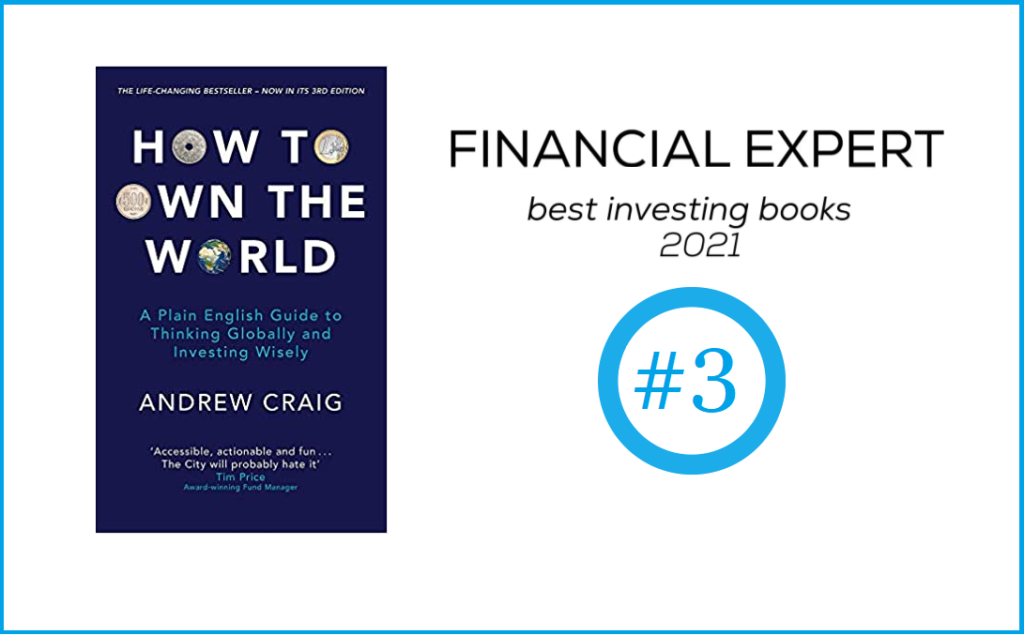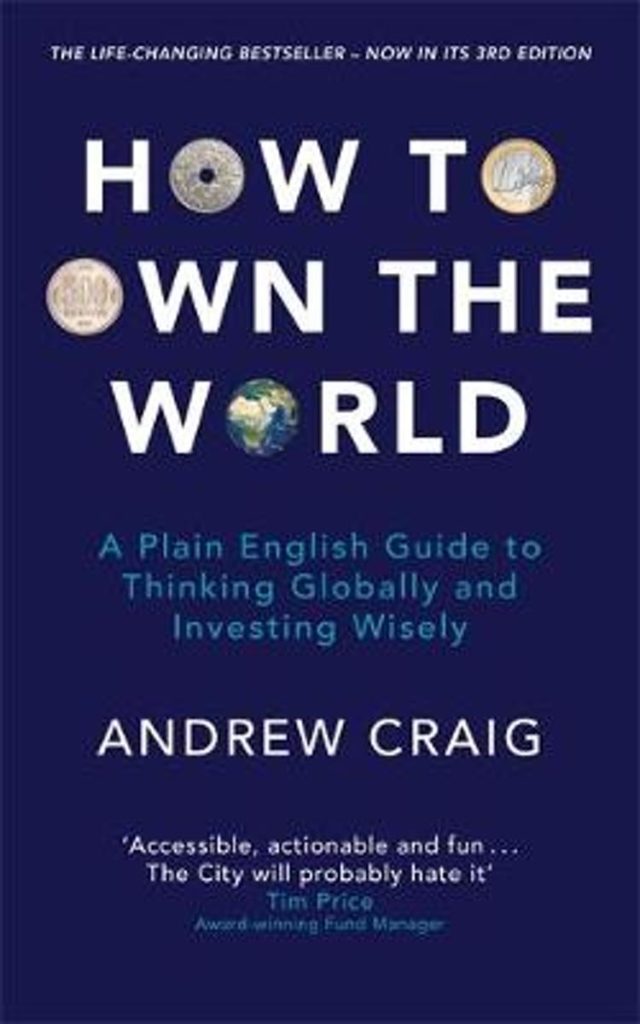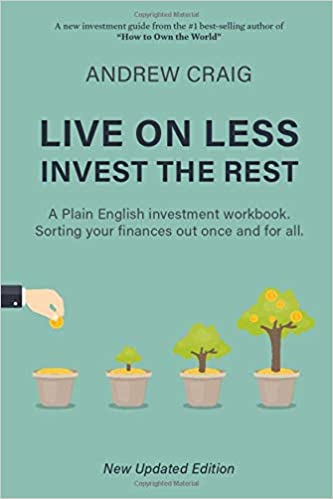Andrew Craig is the author of the best-selling investing title How to Own the World; the #3 ranked investing book of all time on our best investing books page.

Andy has kindly agreed to be interviewed as part of our top ten author interview series of blog posts. If you have any further questions for Andy, please let me know in the comments. Alternatively, you can follow Andy on Twitter at @andyroocraig.

Interview with Andrew Craig
Please could you tell us a little about your professional background and why you felt inspired to write How to Own the World
Andy: I have two main roles. In one (WG Partners – a boutique investment bank, specialising in life sciences) – I do my best to try to find investors for biotech and healthcare companies.
In the other (Plain English Finance) – our stated goal is “to improve the financial affairs of as many people as possible”. We seek to do this through my books and other writing, and via an online community and an investment fund.
If there was one event that inspired me to write “How to Own the World” – it was when I was on holiday in November 2007. One night I found myself having yet another conversation with someone who was extremely bright and had a great job but who went to great lengths to tell me that had no clue about finance and investment – and were too scared and distrustful of the finance industry to ever invest their money in anything other than property.
I suddenly realised that I had been having the same conversation for years and thought that I should do something about that given what a tragedy it is that so few people ever learn anything about finance. My reaction was to structure my thoughts on the subject and get them down on paper.
This title is a guide for beginners & generalists. What drove you to write such a comprehensive guide compared to a more specialist title?
Andy: Over many years working in the City of London, it became increasingly clear to me just how little most people know about the nuts and bolts of effective personal finance and about economics more generally. We live in a capitalist society but almost certainly 90% or more of the population has no functional understanding of capitalism – what it actually is and how it works.
This is certainly also true of many of our politicians – which is a big part of our problem nowadays. Amazingly enough, even people who work for big investment banks can often be pretty hopeless when it comes to their own personal finances. If they’re not very good at it – what hope do the rest of the population have?
I feel very strongly that this is truly one of the biggest problems of our time. Financial literacy can be a silver bullet – for the individual because it hugely increases the chance someone can become wealthy – and actually makes it pretty simple to be comfortably off at the very least, almost no matter what you earn.
Bigger picture, however, it is also extremely good for society as a whole. The more people within a society who are good at this, the better that society will likely be, all other things being equal, given that people are able to take care of themselves and their dependents, and there is more money available for tax and to fund innovative companies (see Switzerland and Singapore for details, for example).
“How to Own the World” was my first attempt to address that problem by trying to make the subject as accessible as possible to people and write about it in plain English (hence why our business is called www.plainenglishfinance.com ).

In the course of researching and writing your books – did you come across anything that surprised you?
Andy: Not really to be honest. I suppose the main thing was just how depressingly strong the evidence is for how poor financial literacy is. We all intuitively understand that it is a problem but the sheer scale of it and what it means for people – for their happiness and sanity in particular – is probably even worse than we realise.
For budding financial writers, what is the one piece of advice would you give to those writing to educate beginners about investments?
Andy: That’s a difficult question. I think a key thing is to assume nothing. Very few people in our society have any deep understanding of many of the most fundamental concepts around investment and actually, more broadly, about capitalism as a whole as a result – given that the two are inextricably linked.
Many people will readily admit they don’t really understand what the stock market is, for example, or what bonds are or how they are related to interest rates and the ability of governments to spend money, or what inflation is and how important that is to understand. Most people’s understanding of something as fundamental as money and how it really works is actually incredibly superficial – which is highly problematic for individuals and for society as a whole. I think any attempt to educate people about “investment” has to rest on a plain English explanation of these very most fundamental nuts and bolts of how money and capitalism function first.
And finally, I like to ask all authors; when saving and investing your own money, what is your preferred investing style?
Andy: I’m pretty regularly on record making the point that I believe succeeding with your finances is probably about 90% admin and 10% asset selection. Get the admin right and you’ll be amazed at the results over time.
My broad approach to how to do that admin was the subject of my second book, Live on less, invest the rest published in July of last year.

The basic idea is that you invest at least 10% of what you earn if at all possible, as soon as you earn it, without fail from the moment you start earning money for the rest of your life, preferably by direct debit. If you can’t afford to do this, you need to re-calibrate your life so you can. Most people are able to do this when they really try to figure it out. You then use something called “100 minus your age” to give you a rough idea of how much of these savings to allocate to “aggressive” versus “defensive” assets.
Once you’ve done that – you set up a direct debit into a small number of appropriate funds each month and then leave well alone, ideally for five years at a time (when you do the “100 minus your age” calculation again and tweak things).
This is all pretty simple and actually so much simpler than many people realise sadly. It is probably worth stressing that I’m all about (long term) investing, NOT (short term) trading. This is a very key distinction that it is really important to understand. I think it is relatively easy to succeed at investing – and this is an appropriate activity for absolutely everyone, almost no matter what you earn.
The same cannot be said about trading – which is something that only pretty wealthy folk who also have a decent amount of time on their hands should think about doing. One of the tragedies of our time is how many people get swept into trading before they’ve taken care of investment.
To me, that is like someone with a white belt in karate or judo attempting to fight black belts in their first class! You’re very likely to get hurt! This is particularly bad at the moment given the explosion of interest in things like crypto and supposedly free trading platforms.